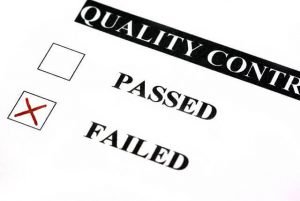
Free Consultation(203) 447-0000

Free Consultation(203) 447-0000
 In September of this year, Target recalled about 178,000 Zak Designs water bottles after they received reports that components were prone to breaking, thus creating a choking hazard for children. These 26-ounce plastic character-inspired bottles are 10-inches tall and feature a flip-top spout, twist off cap and colored inner plastic straws. They were sold in Target stores exclusively as part of their back to school promotion.
In September of this year, Target recalled about 178,000 Zak Designs water bottles after they received reports that components were prone to breaking, thus creating a choking hazard for children. These 26-ounce plastic character-inspired bottles are 10-inches tall and feature a flip-top spout, twist off cap and colored inner plastic straws. They were sold in Target stores exclusively as part of their back to school promotion.
The company, Zak Designs, received nine separate reports of the inside straw breaking and seven reports about plastic fragments that were spit out by children when using the water bottles. There have been no injuries reported, but the company has warned consumers to stop using the bottles immediately and contact them for a replacement. These bottles were sold in Target stores for about $10 from June to July of 2015. The mold number “14158” and the company name, Zak Designs, are embossed on the bottom of the bottle for easier identification.
While the company has recalled the bottles, if injuries occur due to the defective design, the company is still liable for any injuries and damages caused because of that design flaw. These water bottles featured a defective and dangerous design flaw that allowed them to not only break easily, but also allowed small plastic fragments to enter the straw and into children’s mouths – which poses a serious choking hazard.
Defective products can injure consumers or cause death. When someone is injured by a defective product, they could suffer long-term health effects that require extensive medical treatment. In the case of small children, death could result from these small plastic fragments.
This defective product would fall under product liability. Product liability claims can typically be broken into three broad categories, which include:
In the case of the water bottles, it is unclear if they are a design defect or simply a manufacturing defect. Because the company has already corrected the problem and is issuing replacements that are without defect, it is unlikely this will become a widespread issue.
Contact Berkowitz and Hanna LLC today to schedule a no obligation case evaluation. Call 866-479-7909 or contact us online to get started.
Berkowitz Hanna
